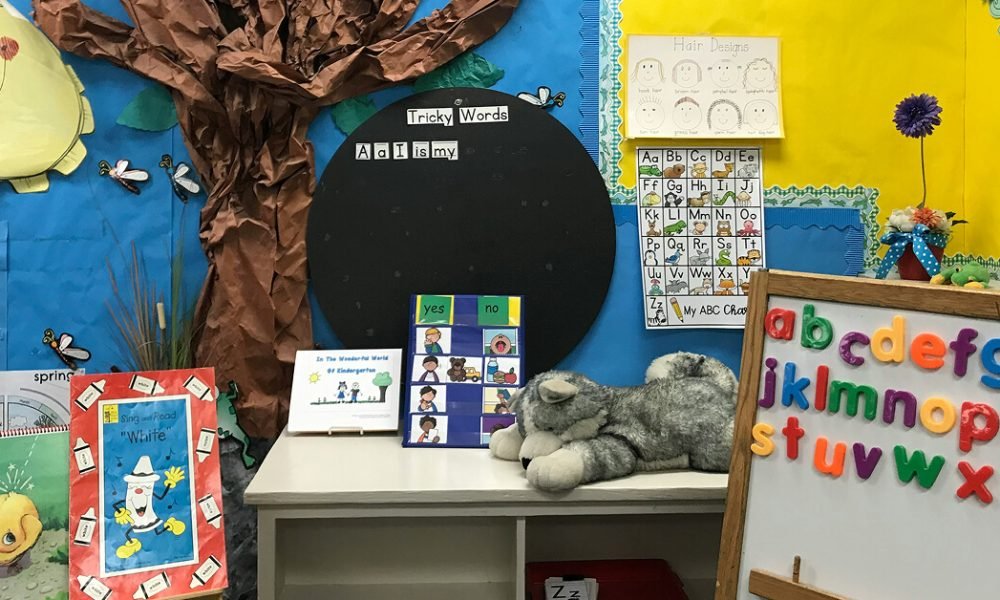First grade is a magical time in your child’s life, filled with exploration, learning, and growth. As a parent, you might wonder what your child should know before they start first grade, what they will learn during the year, and what skills they’ll have by the end.
Let’s dive into this journey together and discover how you can support your little learner throughout the year in preparation of first grade.
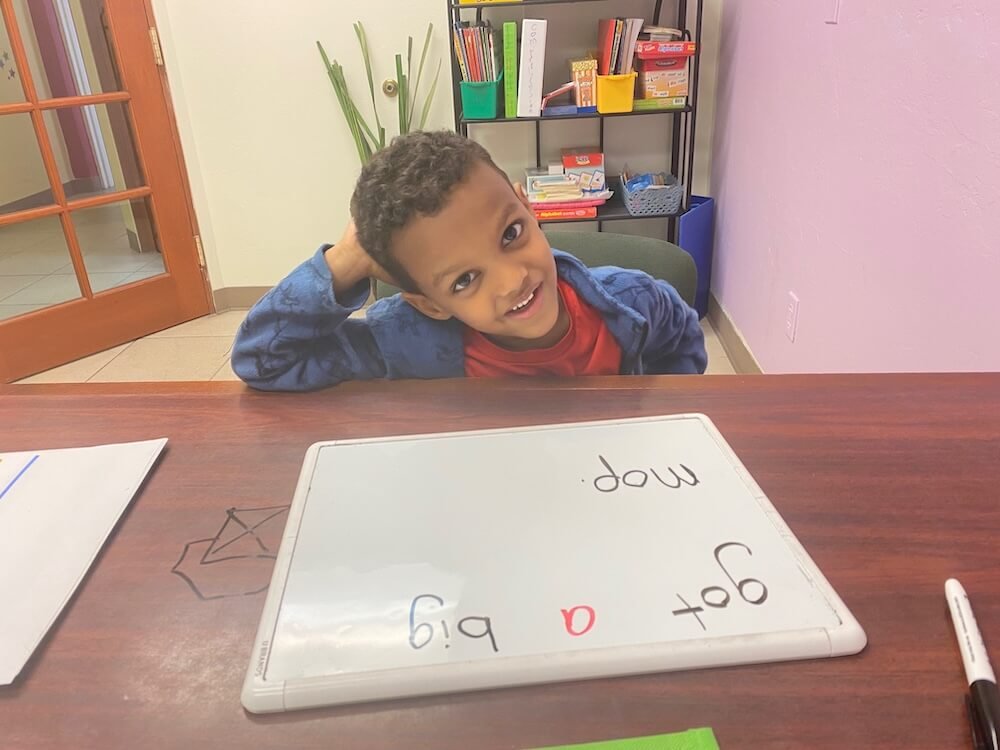
What Your Child Should Know Before Entering 1st Grade
Basic Literacy Skills
Before stepping into first grade, your child should have a few foundational literacy skills. They should be able to recognize each letter of the alphabet and also identify the name of each letter, the letter’s sound and even write the alphabet.
Your child would benefit from having a basic knowledge of phonics in order to sound out simple words. Learning the sounds of each letter will help them do that!
Your child should also be able to recognize a few high-frequency words such as “the,” “and,” “is.” This will give them a head start in learning to read simple sentences.
Learning phonics should be fun! Engage your child in activities that promote letter recognition and sounds, such as playing alphabet games; these days, there are a variety of phonics games online, in stores, and on apps. Use key words like phonics, kindergarten or preschool, alphabet, and/or letters to find games that your child will love.
You can also make learning high-frequency words fun by using multi-sensory games, flashcards, apps, or by creating engaging stories!
Don’t forget to make time to read together with your child; reading to your child can be immensely beneficial as they will develop a life long love of literacy, enhanced vocabulary, and increased exposure to literature.
Acquiring basic phonics knowledge lays important groundwork for reading fluency and comprehension. At Marmalade Skies Tutoring, we make sure your child has fun while learning these foundational building blocks!
Basic Math Skills
Counting to 100, recognizing numbers from 0 to 20, and having a basic understanding of addition and subtraction are crucial math skills for incoming first graders. These skills form the foundation for the more complex concepts they’ll encounter in first grade.
At Marmalade Skies Tutoring, your child will strengthen their basic math skills so that they are set up for success in school; we make learning math fun and hands-on for maximum engagement and understanding.
Simple activities, like counting objects around the house or playing with building blocks, can make learning these concepts fun and engaging. It’s important for children to see math as a part of everyday life, which can help demystify the subject and build confidence.
Social and Emotional Skills
Equally important are social and emotional skills. Your child should be able to share and cooperate with peers, follow simple instructions, and manage basic self-regulation and emotional expression prior to entering first grade. These skills will help them navigate the classroom environment smoothly and strengthen their aptitude for learning.
Social skills can be taught by encouraging your child to participate in group activities, group classes, or even playdates. For example, you can help your child learn social skills like taking turns, waiting, being kind, by engaging them in structured activities like hide-and-seek or CandyLand.
Emotional skills are equally important. Teaching your child how to express their feelings in words and practice empathy will contribute to their emotional development. You can help your child identify their feelings and show them healthy ways to express their emotions Talking with preschoolers about emotions — Early Learning Professionals — Better Kid Care.
General Knowledge
A basic understanding of time (days of the week, months of the year) and the ability to recognize common shapes and colors will also set your child up for success!
Incorporating learning into daily routines, such as talking about the day’s schedule or pointing out shapes and colors during a walk, can help reinforce these concepts in a natural and enjoyable way.
There are numerous colorful wall calendars, designed for young learners, that will provide important visual information you can use to help your child acquire this general knowledge in an engaging way.
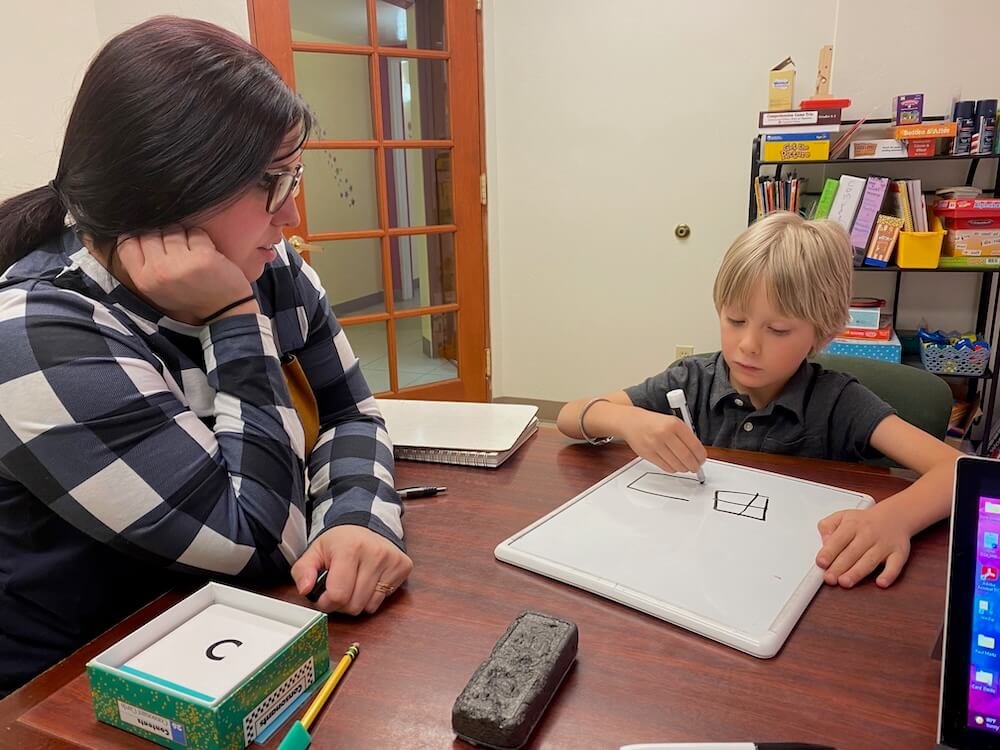
What Your Child Will Learn in 1st Grade
Language Arts
In first grade, your child will dive into reading simple stories and understanding main ideas. They will learn to write simple sentences, use punctuation, and expand their vocabulary.
By the end of the year, they should be comfortable expressing ideas clearly in writing even if their spelling isn’t perfect. Spelling correctly is a skill that is developed over time. At Marmalade Skies Tutoring, we incorporate spelling into our reading and writing into each tutoring session for consistent practice.
First graders will also be introduced to basic grammar and spelling rules. They will practice these skills through various writing exercises, such as journaling, storytelling, and creating their own books. Encouraging your child to write about their day or invent stories can help reinforce these lessons.
Mathematics
Math in first grade includes addition and subtraction within 20, understanding place value (tens and ones), and an introduction to measurement and data through charts and graphs. We use tangible manipulatives to teach these concepts along with lots of practice, starting with base 10.
These concepts will enhance their problem-solving skills and numerical understanding. First graders will also begin to explore concepts such as time (reading clocks), money (identifying coins and their values), and simple fractions (understanding halves and quarters).
Incorporating math into daily at-home activities, such as cooking (measuring ingredients) or shopping (counting money), can make these concepts more relatable and easier to grasp.
Science
Your child will explore basic life sciences (plants, animals, and their habitats), earth sciences (weather, seasons), and participate in simple experiments and observations.
This hands-on learning fosters a love for discovery and critical thinking. First graders will also learn about the scientific method – making observations, forming hypotheses, conducting experiments, and drawing conclusions.
Encouraging curiosity and exploration at home, such as by planting a garden or observing the weather, can enhance their understanding and interest in science.
Social Studies
First graders learn about community roles and responsibilities, basic geography (maps and globes), and history through stories and biographies.
These lessons help them understand the world around them and their place in it. They will also explore themes such as citizenship, cultural diversity, and historical events.
Engaging your child in discussions about family history, cultural traditions, and current events can provide context and depth to their social studies lessons.
Ensure your child excels in 1st grade! Book a free consultation now to learn how Marmalade Skies tutoring services can support their learning journey.
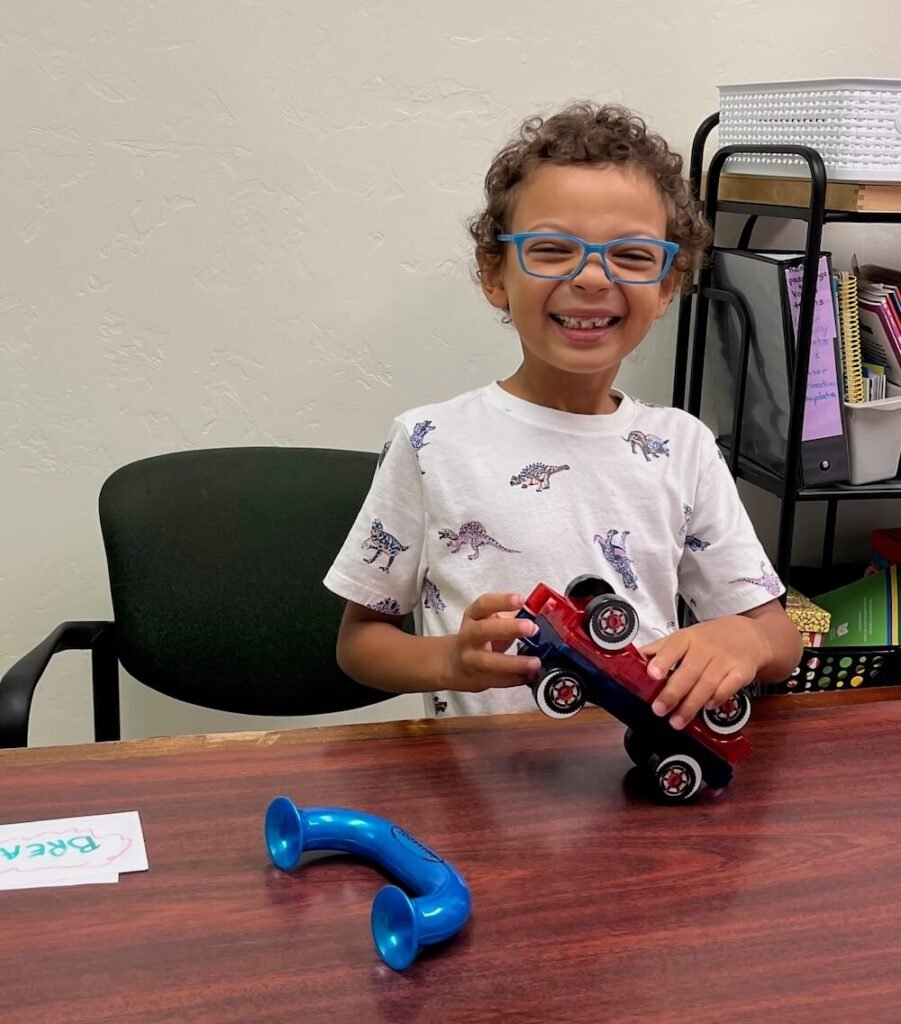
What Your First Grader Should Know by the End of the Year
Literacy
By the end of first grade, your child should be able to read and comprehend grade-level texts independently, write complete sentences with proper capitalization and punctuation, and clearly express ideas in writing.
They should be comfortable with basic grammar and spelling rules and be able to write simple paragraphs. Encouraging regular reading at home, whether through bedtime stories or independent reading time, can significantly enhance their literacy skills.
Mathematics
They will have fluency in addition and subtraction within 20, understand simple fractions and shapes, and be able to solve word problems. These skills are essential for their continued success in math.
First graders will also be able to read and interpret simple graphs and charts, understand basic concepts of time and money, and apply math skills to real-life situations.
Engaging in math-related games and activities at home can reinforce these skills and make learning math fun. 30 First Grade Math Games That Will Really Engage Your Students
Science
Your child will have a basic understanding of plant and animal life cycles, weather patterns, and the ability to conduct simple experiments and record observations. This knowledge lays the groundwork for future scientific exploration.
First graders should also be able to ask questions, make predictions, and communicate their findings. Encouraging a sense of wonder and curiosity about the natural world can inspire a lifelong love of science.
Social Studies
They will understand basic economic concepts (needs vs. wants), have awareness of historical figures and events, and be able to use maps to identify basic geographical features. These lessons build a foundation for responsible citizenship and historical awareness.
First graders should also be able to understand the importance of rules and laws, recognize the roles of community helpers, and appreciate cultural diversity. Discussing these concepts at home and relating them to your child’s experiences can deepen their understanding and interest.
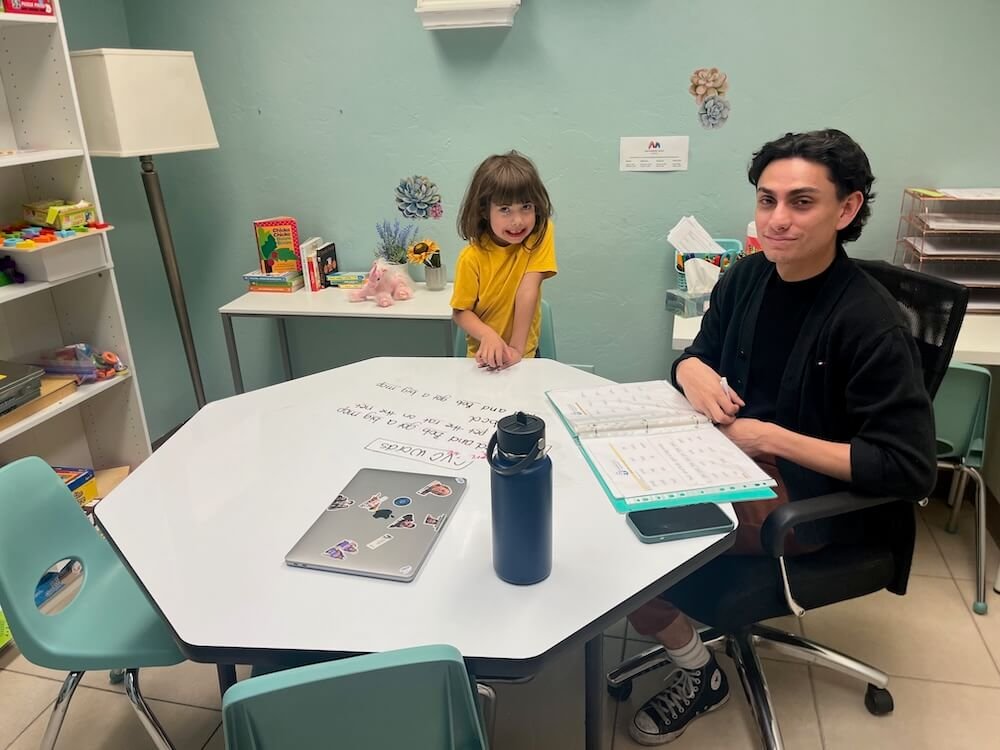
A Tutoring plan for 1st Graders
With Marmalade Skies Tutoring, your child will get a firm foundation in reading, writing, and math. They will fill in gaps in their understanding and build confidence so that they have a successful first grade experience.
Letter Recognition and Sounds
At the first grade level, we help make sure your child can recognize letters and match their sounds, blend those sounds in order to read simple words, and decode regularly spelled one syllable words.
Phonics Patterns
We also help them to recognize basic phonics patterns in order to read with fluency. As they are learning these decoding skills, we weave in reading fluency practice so that they learn to read smoothly and with expression, in addition to comprehending sentences and stories while they are reading them aloud.
Writing Composition
Marmalade Skies tutors help first graders learn how to compose simple sentences using proper capitalization and punctuation, spell basic high-frequency words, form letters neatly, write their first and last names, and begin to craft short stories with basic narrative structure, including story phrases such as “once upon a time” and “happily ever after.”
Math Foundations
Students are expected to learn a variety of foundational mathematical skills in the first grade and Marmalelde Skies tutors ensure they are competent in all of them. We teach your child count in sequence, skip count, and perform basic operations of addition and subtraction.
After that, we move to place value for ones and tens, then introduce basic fractions and the concept of dividing into equal groups. We help your child learn how to read basic bar graphs, measurement, and time. And, as with all math, we weave in the opportunity to practice word problems.

Steps Parents Can Take to Enhance Their Child’s Education Throughout the Year
Literacy Enhancement
- Daily Reading: Read a variety of books with your child to build their love for reading. Discuss the stories and ask questions to improve comprehension, such as character’s intentions, feelings, behaviors, and then help your child to make logical predictions. Make reading a part of your daily routine, whether it’s bedtime stories or a quiet reading time during the day.
- Writing Practice: Encourage your child to keep a journal or write stories. This practice enhances writing skills and creativity. Provide them with fun writing prompts or let them create their own stories. Investing in a small journal – even an inexpensive, pocket sized journal – will encourage your child to see writing as a fun, daily activity that can take place anytime, anywhere.
- Word Games: Play word games to build vocabulary and make learning fun. Games like Pop It, Bananagrams, Big Boggle or word searches can be both educational and entertaining.
Math Enhancement
- Everyday Math: Use daily activities like cooking or shopping to practice counting and simple calculations. These real-life applications make math tangible. For example, ask your child to help measure ingredients for a recipe or count out money for a purchase.
- Math Games: Introduce fun math games and apps to reinforce skills in an engaging way. There are many educational apps and games designed to make math practice enjoyable!
- Regular Practice: Practice counting and simple math problems regularly to build confidence and proficiency. Use flashcards, worksheets, or math puzzles to keep skills sharp.
Science Exploration
- Home Experiments: Conduct simple science experiments at home to spark curiosity and hands-on learning. Experiments like making a volcano, growing crystals, or observing plant growth can be exciting and educational.
- Field Trips: Visit science museums and nature centers to provide real-world experiences. These outings can enhance your child’s understanding and interest in science.
- Encourage Questions: Foster a sense of wonder by encouraging your child to ask questions about the natural world. Take time to explore these questions together, whether by looking up information online, reading books, or conducting experiments.
Social Studies Involvement
- Community Discussions: Talk about community roles and responsibilities to help your child understand their importance. Discuss the roles of different community helpers, such as firefighters, police officers, and teachers.
- Map Exploration: Explore maps and globes together to build geographical knowledge. Identify different countries, states, and cities, and discuss their significance. I love pulling out a map of the world and talking with my child about where we live, what oceans are nearest us and which states surround ours. It lends to natural curiosity about what else is on the map, such as other countries, rivers, oceans, and deserts.
- Historical Stories: Share stories about historical figures and events to make history come alive. Read biographies, watch documentaries, or visit historical sites to provide context and depth to these lessons.
General Tips
- Communication with Teachers: Maintain consistent communication with your child’s teachers to stay informed about their progress and needs. Attend parent-teacher conferences, read school newsletters, and reach out to teachers with any questions or concerns. You can ask your child’s teacher for an overview of the quarter’s curriculum so that you can help target those skills at home.
- Structured Routine: Establish a structured routine for homework and study time to create a productive learning environment. Set aside a specific time and place for your child to do their homework and study each day.
- Positive Attitude: Encourage a positive attitude towards learning and school to help your child develop a lifelong love of education. Celebrate their achievements, no matter how small, and provide support and encouragement when they face challenges.
Get ready for a year of achievement!
First grade is a critical year in your child’s educational journey. By understanding what your child should know before starting, what they will learn throughout the year, and how you can support them, you are setting them up for success.
Remember, your involvement and encouragement make a world of difference. Here’s to a wonderful first grade year filled with growth, discovery, and joy! By taking an active role in your child’s education, you are helping to lay the foundation for their future academic success and lifelong love of learning.

